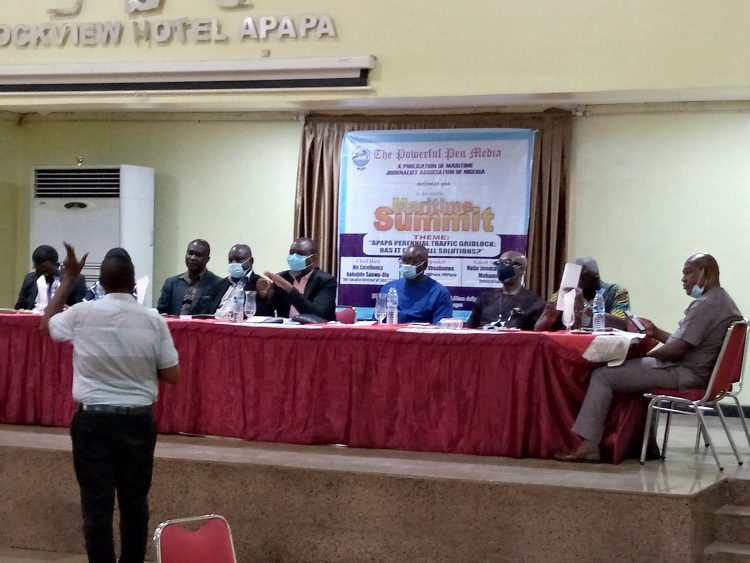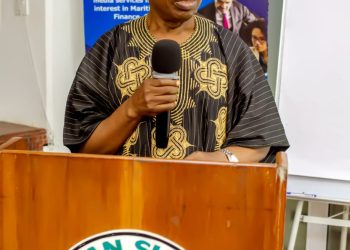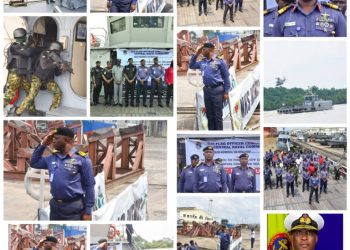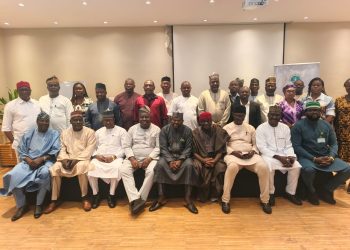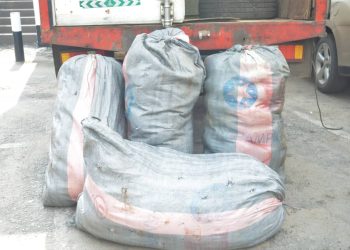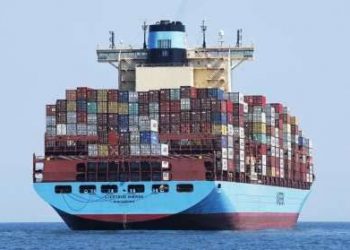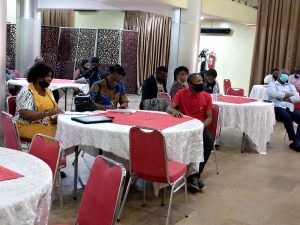 EXPERT LINKS PORTS CONCESSION PROCESS AND IT’S RESULTANT GRIDLOCK WITH THE NWANKELU BIRD ANALOGY..
EXPERT LINKS PORTS CONCESSION PROCESS AND IT’S RESULTANT GRIDLOCK WITH THE NWANKELU BIRD ANALOGY..
BY LOD ONYEJI
These almost overwhelming challenges of the Apapa ports access roads were long seen by well meaning maritime key stakeholders, like the NWANKELU bird analogy by Comrade Ray Ugochukwu, President Maritime Journalists Association of Nigeria. According to Ray, just like the early warnings of the experts, the authorities then, paid no attention to the warnings of these great futuristic maritime intelligentsia. Today that same problem is becoming a monster, to everyone doing business around the Apapa ports.
* * * * * * * * * * * * * * * * * * * * *
When the concession plan was conceived over a decade and half ago, it was perceived to be a very brilliant idea meant to speedily grow the nation’s economy. Fifteen years down the lane of Nigerian ports concession, same experts who sent some warnings many years ago are now really perturbed that 15 years after the flag-off of the nation’s ports concession, these ports are still not business friendly; lack trading predictability, remain non competitive, non transparent and efficient. What is even more worrisome is the fact, that despite several Seminars Workshops, Symposia, Lectures and Conferences held on the subject matter, with recommendations thereof, though sometimes prompts the Government cosmetic intervention or near solutions, the challenges of the Apapa ports access roads continue to void all solutions. The Powerful Pen Media, publishers of the Powerful Pen Newspaper and her sister Association, the Maritime Journalists Association of Nigeria (MAJAN), who have always been in the forefront in the advocacy for maritme industry’s revitalization and advancement, held its maiden Maritime Summit on Wednesday 14th April, 2021, at Rockview Hotel Apapa with the Traffic Gridlock in focus. The Summit had as its theme: “Apapa Perennial Traffic Gridlock: Has it Defied All Solutions?” It was objectively intended to find a workable and lasting solution to this perennial Industry challenge.
The Summit was attended by members of MAJAN including officials and delegates from the Nigerian Ports Authority, Nigerian Shippers’ Council, Nigerian Railway Corporation, Nigeria Customs Service, Wharf Landing Collecting Fees Authority, Nigeria Union of Journalists, Association of Nigerian Licensed Customs Agents, National Association of Government Approved Freight Forwarders, National Council of Managing Directors of Licensed Customs Agents, Sikkens Paints, Sino Trucks, businessmen, industrialists and individuals as papers were presented by experts and resource persons, who traced the genesis of the crisis, its economic and health consequences and proffered the ways forward.
OBSERVATIONS
1. The hurried process of the port reform (concession) by the federal government without Environmental Impact Assessment and the alienation of a key stakeholder like the Nigerian Shippers’ Council in the process leading to the concession.
2. Poor cargo delivery system by port concessionaires which keeps many trucks waiting on the port access roads
3. Collapse of petroleum refineries and vandalism of distribution pipelines and the subsequent establishment of oil depots in Ibafo axis of Tincan Island Port increased the volume of vehicular activities in and around the Lagos ports
4. Policy summersaults by the government – the revocation of the land already allotted to truck owners as a park by the Lagos State Government
5. Poor management of trucks and drivers by owners which occasioned bad driving habits of the drivers
6. Bad state and slow reconstruction of port access roads by the contractors
7. Lack of space for expansion of port infrastructure in view of a rise in the volume of cargo throughput.
ABSENTEES
The Summit condemned in strong terms the wilful absence of some key stakeholders whose actions and inactions have caused the traffic crisis to fester. These, it mentioned as shipping companies, terminal operators and transport groups.
IMPACT OF THE TRAFFIC GRIDLOCK ON PORTS AND STAKEHOLDERS
1. Consistent port congestion and turnaround of vessels
2. Excessive rise in costs of cargo clearance/delivery and transportation
3. Astronomical increase in costs of living occasioned by the gridlock
4. Loss of patronage of Nigerian ports by landlocked countries of Niger Republic, Mali, Chad
5. Loss and closure of allied businesses and companies in and around Lagos ports
6. Health Hazard: Many unwarranted deaths of port workers caused by the gridlock
RECOMMENDATIONS
1. The Federal Government is urged to re-evaluate and re-jig the port reform taking into account the role of the Nigerian Shippers’ Council as the Economic Regulator
2. Terminal Operators (concessionaires) must improve on their cargo handling equipment and delivery systems to enhance quick turnaround of vessels and trucks picking cargo
3. Diversification of transportation modes – ports must be connected with the rail system; feeder vessels should be made to convey containers out of the ports although barges can still be used. This is to create healthy competition to crash prices and reduce pressure on port access roads.
4. Government is advised to revamp refineries and pipelines for effective distribution of wet cargo mostly petroleum products to stem solely reliance on the Lagos ports
5. NPA is urged to revoke licenses given to oil depot owners at Ibafo area in Apapa and possibly relocate the oil depots away from port environs
6. Time has come for the government to reclaiming lands around the ports for expansion of port infrastructure including roads and dedicate road lanes for trucks and tankers
7. NPA’s Call-up is commended but needed to be improved upon for the purpose of monitoring and enforcement with the installation of CCTV in a control room where traffic controllers are stationed for control as against being on the road for control.
8. Truck owners are implored to provide roadworthy trucks and provide standards to checkmate excesses and bad habits of their drivers to stop indiscriminate parking.
9. Trucks Taxing Around Port Access Road – it was further observed that, many of the truck owners (tankers and flat beds) do not have a parking and maintenance garage. Many have but with a limited space in the garage, overwhelmed by their fleets.
This compels and leaves truck owners and their drivers to taxi around the port access road, thereby increasing the traffic.
10. It is disheartening, that 15 years after port concession, the Apapa traffic gridrock seems to have defeated and makes a mockery of the whole essence and objective of the port concession. This perception need to urgently addressed.
CONCLUSION
Participants commended MAJAN for its consistent bold step in proffering solutions to the monster and concluded that the traffic gridlock is synonymous with Lagos ports and is man-made: This is because:
1. Port administrators have failed to manage the port efficiently. As Apapa port is typically a case of administrative forecast and planning failure.
2. Nigerian ports presently under the grip of the gridlock are not profitable and IT-compliant
3. E-Call Up system is not working as expected and that NPA and other managers of the system must go back to the drawing board to perfect it
4. Those in positions of authority in the industry should take up responsibilities to tackle the gridlock once and be held accountable if it persists in spite of the recommendations.
5. There is need to draw a line between truck owners garage, transit park and call up park. The triangular truck parking system should be revisited and implemented.
6. All hands must be on deck to correct the prevailing perception suggesting that the Apapa Traffic gridrock seems to have made a mockery of the whole essence and core objectives of the ports concession. Nigerian leaders have to be resolutely determined to concesciously and Sincerely look into these far reaching recommendations.



